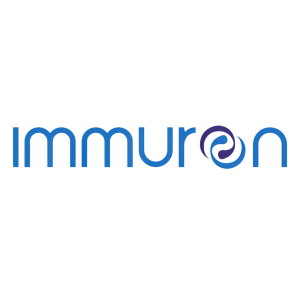Immuron Announces Travelan® Clinical Trial Update
Rhea-AI Summary
Immuron (NASDAQ: IMRN) has submitted a Clinical Study Report to the FDA for its completed Travelan® (IMM-124E) Phase 2 trial, with plans to request an end of Phase 2 meeting before proceeding to Phase 3. The study demonstrated statistically significant results in both immunology and microbiome responses.
The trial showed lower IgA and IgG levels in Travelan®-treated subjects compared to placebo, indicating reduced ETEC antigen exposure. There was also a significant reduction in colony forming units in subjects' stools after 48 hours (p=0.0121), suggesting faster pathogen clearance.
Microbiome analysis revealed that the Travelan® group maintained more stable gastrointestinal microbiota, with improved richness and diversity compared to placebo. The treatment group showed increased levels of beneficial bacteria and reduced inflammation-associated bacteria.
Additionally, a separate Uniformed Services University field study has randomized 776 subjects, with final enrollments expected in March 2025 and follow-up completion around June 2025.
Positive
- Successful completion of Phase 2 trial with statistically significant results
- Clinical data showed significant reduction in pathogen levels (p=0.0121)
- Demonstrated positive effects on gut microbiome stability and diversity
- Large-scale field study progressing well with 776 subjects enrolled
Negative
- Further investigation needed to fully understand microbiome benefits
- Phase 3 trials yet to begin, pending FDA meeting
News Market Reaction
On the day this news was published, IMRN gained 1.52%, reflecting a mild positive market reaction.
Data tracked by StockTitan Argus on the day of publication.
Highlights:
- Travelan® (IMM-124E) Phase 2 Clinical Study Report submitted to the FDA
- Travelan® (IMM-124E) Phase 2 Clinical Study Statistically Significant Immunology Results
- Travelan® (IMM-124E) Phase 2 Clinical Study Statistically Significant Microbiome Responses
- Travelan® P2TD (n=866) Uniformed Services University field study randomized 776 subjects
MELBOURNE, Australia, Jan. 14, 2025 (GLOBE NEWSWIRE) -- Immuron Limited (ASX: IMC; NASDAQ: IMRN), an Australian based and globally integrated biopharmaceutical company is pleased to announce that it has submitted the Clinical Study Report to the U.S. Food and Drug Administration (FDA) for the recently completed Phase 2 study and will soon request an end of Phase 2 meeting which is a pre-cursor to proceeding to Phase 3.
Travelan® (IMM-124E) Phase 2 Clinical Study
NCT05933525: A Randomized, Double-blind, Placebo-controlled Trial Assessing the Efficacy of IMM-124E (Travelan®) in a Controlled Human Infection Model for Enterotoxigenic Escherichia Coli (ETEC)
Immunology
Statistically significant lower levels of IgA and IgG were observed for the subjects who received Travelan® compared to those who received the placebo, which may also reflect levels of exposure to ETEC antigen. Travelan® antibodies target and bind to ETEC antigen in the gastrointestinal tract, block LPS epitopes and therefore reduce antigen exposure, resulting in lower overall IgA and IgG antibody titers.
Clinical data also demonstrated there was a statistically significant reduction in the number of colony forming units (CFUs) in the stools of subjects who received Travelan® (p =0.0121), measured 48 hours post challenge, indicating faster clearance of the challenge strain from the GI tract.
Microbiome
Participants in the Travelan® group have a more stable gastrointestinal microbiota over the treatment time period when compared with the Placebo group. Alpha diversity, a measurement of the richness (how many different species) and evenness (abundance or number of different species) revealed that the Travelan group had improved richness and Shannon diversity results compared to the Placebo group. The data indicated a difference in the richness in the diversity of certain species rather than just the abundance or number of bacterial species between the two groups.
Statistically significant differences were identified between the two treatment groups in the Beta diversity tests (number of species and abundance). The relative abundance results revealed that the Travelan group had increased levels of beneficial bacteria such as Akkermansia and Faecalibacterium. The differential abundance results confirmed increases in Agathobaculum, Slackia the Eubacterium eligens group, and the Eubacterium siraeum group; and decreases in Rumminococcus and Bacteroides. The abundance data indicates a possible link between the species of bacteria associated with reduced inflammation.
This study data implies that Travelan® appears to aid in the reduction and clearance over time of pathological ETEC bacteria, by shortening the recovery period after ETEC challenge. The mechanism indicates there is an increase in the propagation of bacteria associated with decreases in inflammation and repairing the intestinal lining. Further investigation into this association is required to fully understand the benefits of Travelan® on the gut microbiome.
Uniformed Services University field study
NCT04605783: A Randomized, Double-Blind, Placebo-Controlled Trial to Evaluate a Dietary Supplement to Maintain Gut Health During Deployment and Travel. To date a total of 776 subjects have been randomized into the clinical study. We anticipate the last enrollments to occur in March 2025 and follow-up to be completed around June 2025.
This release has been authorised by the directors of Immuron Limited.
| COMPANY CONTACT: Steven Lydeamore Chief Executive Officer steve@immuron.com |
About Immuron
Immuron Limited (ASX: IMC, NASDAQ: IMRN), is an Australian biopharmaceutical company focused on developing and commercializing orally delivered targeted polyclonal antibodies for the treatment of infectious diseases.
About Travelan®
Travelan® is an orally administered passive immunotherapy that prophylactically reduces the likelihood of contracting travelers’ diarrhea, a digestive tract disorder that is commonly caused by pathogenic bacteria and the toxins they produce. Travelan® is a highly purified tabletized preparation of hyper immune bovine antibodies and other factors, which when taken with meals bind to diarrhea-causing bacteria and prevent colonization and the pathology associated with travelers’ diarrhea. In Australia, Travelan® is a listed medicine on the Australian Register for Therapeutic Goods (AUST L 106709) and is indicated to reduce the risk of Travelers’ Diarrhea, reduce the risk of minor gastro-intestinal disorders and is antimicrobial. In Canada, Travelan® is a licensed natural health product (NPN 80046016) and is indicated to reduce the risk of Travelers’ Diarrhea. In the U.S., Travelan® is sold as a dietary supplement for digestive tract protection.
Travelers’ diarrhea (TD)
TD is generally defined as the passage of ≥ 3 unformed stools per 24 hours plus at least one additional symptom (such as nausea, vomiting, abdominal cramps, fever, blood/mucus in the stools, or fecal urgency) that develop while abroad or within 10 days of returning from any resource-limited destinations (Leung et al., 2006). Diarrhea continues to be the most frequent health problem among travelers to destinations in lower- and middle-income regions (Steffen, 2017). Deployed US military personnel, essentially representing a long-term traveller population, are particularly affected given their population dynamics and the context in which they seek care and treatment (Connor et al., 2012). Diarrhea is the leading infectious disease threat to the overall health and preparedness of deployed US armed forces, with diarrheagenic E. coli, Campylobacter spp., and Shigella spp. among the most commonly reported etiologies (Riddle et al., 2006).
Immuron Platform Technology
Immuron’s proprietary technology is based on polyclonal immunoglobulins (IgG) derived from engineered hyper-immune bovine colostrum. Immuron has the capability of producing highly specific immunoglobulins to any enteric pathogen and our products are orally active. Bovine IgG can withstand the acidic environment of the stomach and is resistant to proteolysis by the digestive enzymes found in the Gastrointestinal (GI) tract. Bovine IgG also possesses this unique ability to remain active in the human GI tract delivering its full benefits directly to the bacteria found there. The underlying nature of Immuron’s platform technology enables the development of medicines across a large range of infectious diseases. The platform can be used to block viruses or bacteria at mucosal surfaces such as the Gastrointestinal tract and neutralize the toxins they produce.
IMM-124E (Travelan®)
IMM-124E was developed using Immuron’s platform technology. IMM-124E is produced from the colostrum of birthing cattle that have been immunised during pregnancy with a vaccine containing the outer antigens of multiple human derived ETEC. A total of 13 ETEC strains are used in the vaccine to produce high levels of antibodies against selected surface antigens from the most common strains of ETEC.
The resultant hyperimmune colostrum IMM-124E from ETEC vaccinated cows contains significant levels of polyclonal antibodies specific for ETEC antigens LPS, CFA-I and Flagellin (Sears et al., 2017).
The antibodies produced in IMM-124E have been found to have a stronger binding and neutralizing activity (than the antibodies of unvaccinated cattle) against a wide range of LPS antigens including both the variable O-polysaccharide region and the preserved oligosaccharide core ‘R’ region of LPS from the 13 serotypes used in the ETEC vaccine.
IMM-124E is manufactured into a tablet form referred to as Travelan®.
IMM-529
Immuron is developing IMM-529 as an adjunctive therapy in combination with standard of care antibiotics for the prevention and/or treatment of recurrent Clostridioides difficile infection (CDI). IMM-529 antibodies targeting Clostridioides difficile (C. diff) may help to clear CDI infection and promote a quicker re-establishment of normal gut flora, providing an attractive oral preventative for recurrent CDI.
Immuron is collaborating with Dr. Dena Lyras and her team at Monash University, Australia to develop vaccines to produce bovine colostrum-derived antibodies. Dairy cows were immunised to generate hyperimmune bovine colostrum (HBC) that contains antibodies targeting three essential C. diff virulence components. IMM-529 targets Toxin B (TcB), the spores and the surface layer proteins of the vegetative cells.
This unique 3-target approach has yielded promising results in pre-clinical infection and relapse models, including (1) Prevention of primary disease (
To our knowledge, IMM-529 is, to date, the only investigational drug that has shown therapeutic potential in all three phases of the disease (Hutton et al., 2017).
References
Connor P, Porter CK, Swierczewski B and Riddle MS. Diarrhea during military deployment: current concepts and future directions. Curr Opin Infect Dis. 25(5): 546-54; 2012.
Hutton, M.L., Cunningham, B.A., Mackin, K.E. et al. Bovine antibodies targeting primary and recurrent Clostridium difficile disease are a potent antibiotic alternative. Sci Rep 7, 3665 (2017). https://doi.org/10.1038/s41598-017-03982-5
Leung AK, Robson WL, Davies HD. Travelers’ diarrhea. Adv Ther. Jul-Aug; 23(4): 519-27; 2006
Riddle MS, Sanders JW, Putnam SD, and Tribble DR. Incidence, etiology, and impact of diarrhea among long-term travelers’ (US military and similar populations): A systematic review. American Journal of Tropical Medicine and Hygiene. 74(5): 891-900; 2006.
Sears KT, Tennant SM, Reymann MK, Simon R, Konstantopolos N, Blackwelder WC, Barry EM and Pasetti MF. Bioactive Immune Components of Anti-Diarrheagenic Enterotoxigenic Escherichia coli Hyperimmune Bovine Colostrum products. Clinical and Vaccine Immunology. 24 (8) 1-14; 2017.
Steffen R. Epidemiology of travelers' diarrhea. J Travel Med. 24(suppl_1): S2-S5; 2017.
For more information visit: https://www.immuron.com.au/ and https://www.travelan.com
Subscribe for Immuron News: Here
FORWARD-LOOKING STATEMENTS:
This press release may contain “forward-looking statements” within the meaning of Section 27A of the Securities Act of 1933 and Section 21E of the Securities Exchange Act of 1934, each as amended. Such statements include, but are not limited to, any statements relating to our growth strategy and product development programs and any other statements that are not historical facts. Forward-looking statements are based on management’s current expectations and are subject to risks and uncertainties that could negatively affect our business, operating results, financial condition, and stock value. Factors that could cause actual results to differ materially from those currently anticipated include: risks relating to our growth strategy; our ability to obtain, perform under and maintain financing and strategic agreements and relationships; risks relating to the results of research and development activities; risks relating to the timing of starting and completing clinical trials; uncertainties relating to preclinical and clinical testing; our dependence on third-party suppliers; our ability to attract, integrate and retain key personnel; the early stage of products under development; our need for substantial additional funds; government regulation; patent and intellectual property matters; competition; as well as other risks described in our SEC filings. We expressly disclaim any obligation or undertaking to release publicly any updates or revisions to any forward-looking statements contained herein to reflect any change in our expectations or any changes in events, conditions, or circumstances on which any such statement is based, except as required by law.








